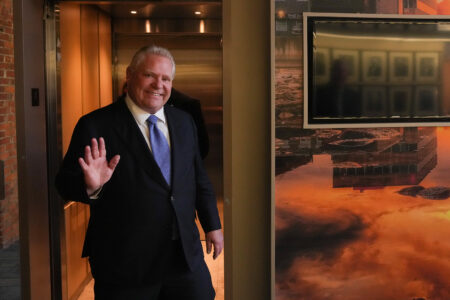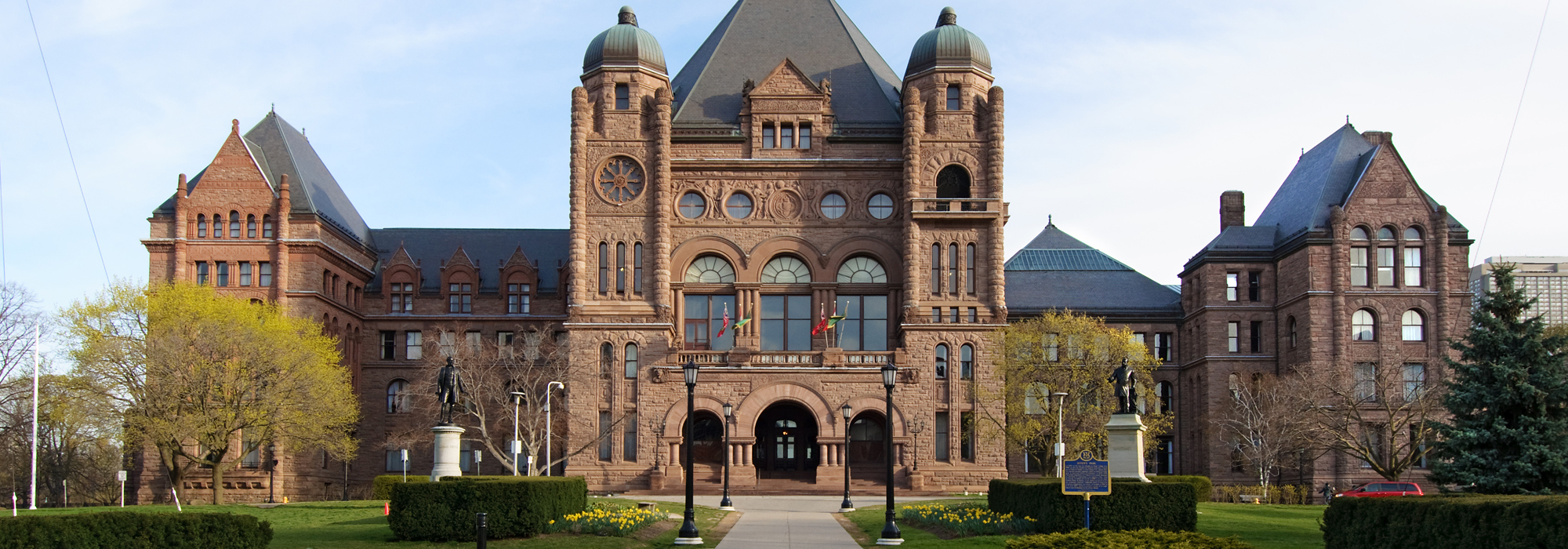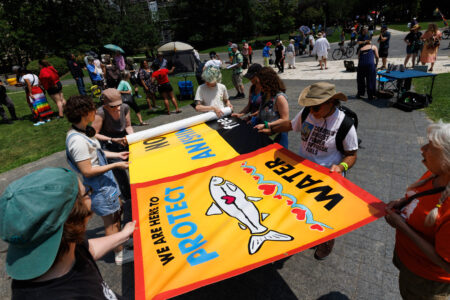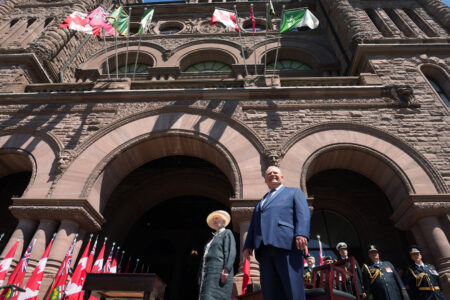
Considering the political disarray that has followed the Brexit vote, this might not seem an obvious moment for Canada to look to the United Kingdom for instruction on public policy. However, our systems of government have many common characteristics, making the UK a valuable comparative point for institutional and policy reform in Ontario. The Ontario government’s recent proposal to overhaul its election finance regulations provides an opportunity to learn from our partners in the Commonwealth.
Many of the proposed changes in the Ontario government’s Bill 201 focus on stronger regulations for third parties. These are individuals or groups that are not political parties or candidates but who wish to participate in an election by supporting or opposing particular policies, candidates or political parties. Unlike at the federal level, where the maximum a third party can spend during an election amounts to less than 1 percent of the limit of a political party (provided they run a full slate of candidates), in Ontario campaigns third parties face no such spending limits.
While third parties in Ontario have been required to report their spending since 2007, recent elections have shown that third parties are free to operate in a largely unencumbered fashion: between 2007 and 2014, the amount spent in elections by third parties increased by 400 percent from $1.8 million to $8.4 million. Bill 201 proposes to create third party spending limits similar to those that have been employed at the federal level since 2000, capping spending for a third party at $100,000 for political advertising during the election period (indexed annually to inflation).
While debate will undoubtedly revolve around whether the $100,000 cap is too restrictive and may therefore dampen the participation of civil society groups in elections, the introduction of spending limits for the campaign period also creates a new set of incentives for third parties that need to be addressed. One of these is the strategic use of political advertising outside the regulated campaign period, which significantly compromises the purpose and effectiveness of spending caps. During the 2015 federal election, for example, groups such as Engage Canada offered flashy political ad campaigns that ended when the official writ was dropped. Moreover, now that Canada seems to be entrenched in an age of permanent campaigning, it should come as no surprise that third parties, just like political parties, are focusing on election strategy outside of the official campaign period – perhaps finding it more effective to capture attention outside of the campaign, rather than trying to voice an opinion in the fray of parties and candidates that dominates election media.
Bill 201 addresses this potential for strategic action by extending the regulated spending period beyond the official election campaign. It says that a third party cannot spend more than $600,000 on political advertising during the six-month period immediately before the issue of a writ for a general election. In practice, this should limit the incentives for third parties to advertise strategically outside of the regulated period. Still, the government must also ward against discouraging political participation by overly constraining and burdening third parties. Setting a fixed regulatory period for third parties that starts before the writ drops can be even more complex when the next election date is uncertain. Ontario’s 2005 Election Statute Law Amendment Act requires elections to be held in October every four years, but it gives the lieutenant governor the ability to dissolve the Queen’s Park Assembly and call an election when circumstances necessitate. This was done in the May 2014 election, which was more than a year before the scheduled October 2015 election.
The UK’s experience with third party regulation offers a number of useful insights when we consider similar reforms for Ontario. For most of its history, election spending in the UK was largely unregulated. This changed with the passage of the Political Parties, Elections and Referendums Act in 2000, which, among other regulations, brought in spending limits for third parties that encompassed the 365 days leading to election day. Additional regulations were placed on third parties with the passage of the Transparency of Lobbying, Non-Party Campaigning and Trade Union Administration Act in 2014. However, this package of reforms was met with such extensive criticism, particularly from UK charities, that the government made the conciliatory gesture of placing in the legislation the requirement that there be an independent inquiry into how the regulatory system worked for third parties in the 2015 general election.
This third party campaigning review, conducted by Lord Robin Hodgson, was released in March of this year. While the report provides a comprehensive review of third party spending in the 2015 election, Hodgson’s findings regarding the twelve-month regulated spending period ought to be considered for Ontario. The review found that the majority of electoral campaigning by third parties took place in the four months ahead of an election, which seems to make the extended twelve-month period of only partial value. As well, the third parties consulted found the twelve-month period “unnecessarily restrictive, and contributing to the erosion of the voice of civil society.” In other words, the extended regulatory period was capturing only minimal campaign activity, and the requirement to track all campaign-oriented spending for the year leading up to an election was a significant regulatory burden on third parties. The reviews findings led Lord Hodgson to recommend that the regulated period for third parties be shortened to four months. The UK government has yet to issue a formal response to the report’s recommendations.
When designing election finance policy, it is important to take into consideration not just how spending regulations will constrain large spenders, but also how the administrative burden of reporting may discourage the participation of less well-financed organizations. These groups might not have the time and resources to allocate to the administrative requirements of an extended regulated period, and consequently, they might elect not to participate as third parties. While this type of regulation is the kind of process-oriented policy change that may appear reasonable and in the interests of transparency to policy-makers; in practice, it should be discouraged if smaller organizations’ participation is valued to the same extent as that of unions, corporations or larger interest groups.
While spending regulations outside of the official campaign period are needed, the UK experience suggests that a more-is-better approach is not always best, and that a regulated period shorter than the six-months currently proposed by Ontario may strike a better balance. The Standing Committee on General Government is tasked with studying Bill 201 and is currently holding public hearings across Ontario. The committee and the Ontario government should make sure they hear from third parties, large and small, in order to better understand how an extended regulated period for spending might affect their participation in elections.
Photo: Howard Sandler/Shutterstock.com
Do you have something to say about the article you just read? Be part of the Policy Options discussion, and send in your own submission. Here is a link on how to do it. | Souhaitez-vous réagir à cet article ? Joignez-vous aux débats d’Options politiques et soumettez-nous votre texte en suivant ces directives.











